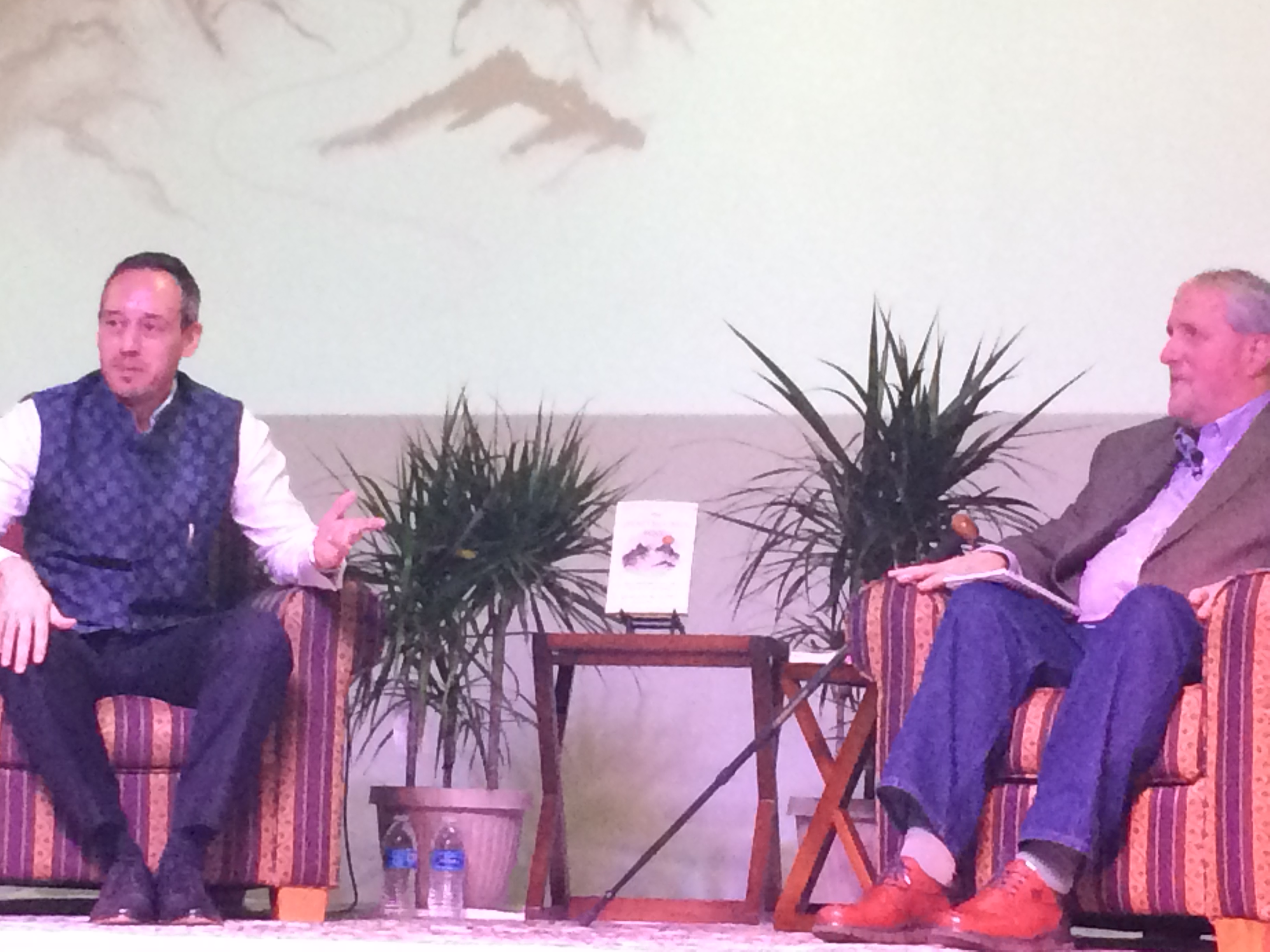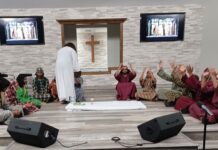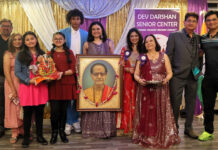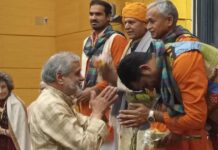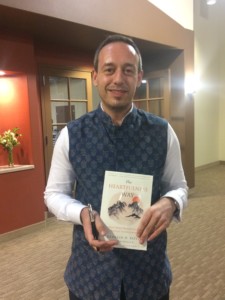
India Post News Service
FREMONT, CA: The “Heartfulness Institute” is an organization that promotes heart-centered meditation to achieve greater peace and harmony within the individual and the world. Most people who hear the name, “Heartfulness” would be intrigued.
To get the word out about this incredible method of meditation, the author of the book, “The Heartfulness Way”, Joshua Pollock sat down with veteran meditator, Brian Jones, for a chat at the Fremont branch of The Heartfulness Institute last month.
Joshua is a classical violinist who has collaborated with AR Rahman. Born and raised in the US, he lives and works in India and shuttles between the two countries.
Brian has been meditating for over 50 years – he started at the age of 12 – his regular job is that of a corporate interior designer, an artist and musician. Like other Heartfulness trainers worldwide, he has been offering free training for this meditative practice.
This particular method has evolved from Ram Chandra, called “Lalaji”, in India in the early twentieth century. Kamlesh D. Patel, affectionately known as “Daaji”, the fourth in the lineage of guides to carry on this tradition.
Joshua’s engaging and humorous conversation with Daaji on meditation, spiritual enlightenment and the Heartfulness method is the crux of the book, “The Heartfulness Way”, recently released by the President of India.
Joshua’s experience of meditating with Brian Jones was completely different from what he had expected. Unlike a ‘sanyasi’ in robes, Brian Jones is a regular guy with a job and family. When Joshua asked him to teach him the Heartfulness method of meditation, Brian sat next to him with eyes closed for a few minutes and said to the former’s surprise, “That’s all”.
Joshua said that people turn to meditation for different reasons – some to improve their focus, some to gain peace of mind, some for religious and/or spiritual reasons – and meditation adjusts whatever needs to be adjusted within you.
He explained that what makes Heartfulness different is the concept of “yogic transmission”, a way to feel the Divine, come in contact with the Source through another advanced meditator or guru. Often, it may take years for an average person to attain this state, however, “yogic transmission” makes the spiritually enlightened state much easier to reach, thus more widely attainable.
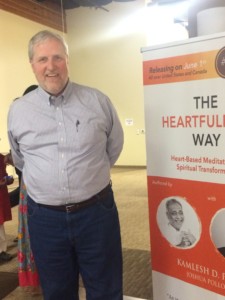
Brian Jones asked the audience to think of a plant and the nourishment it derives from the soil and water, then even subtler nourishment from the sun. Similarly, as our bodies need food and water, and our minds need knowledge, our souls need nourishment, too.
Going further into “heartfulness”, Joshua explained the process of“cleaning”. Often, we are unable to change our behavior, as we are unable to access our subconscious where the roots of our thoughts, our emotions and behavior lie.
Emotional residue is what we collect when we react to things every day. He elaborated, “With every reaction, we create a template, a precedent, a blueprint for our future actions…this becomes cyclic.”
With the process of cleaning, no longer is our future conditioned by all our past experiences.
The speakers said about the impact of this practice: “It is nice to be at peace, it is nice to be happy, not just feel it but become it, bring it into your thinking, speech, interactions with others so that you can impact those around you in a positive way. First, I transform myself. Then the possibility arises to transform those around me.”
Brian then gave a beautiful analogy of a pond with sediments large and small. When one stills the pond from all the ripples, one can see the clear blue sky above.
Some audience members had questions on whether this method would change their identity or wipe out their memories.
Joshua replied, “There can be no change in what you are.” The speakers said that this method merely uncovers one’s true nature, one’s authenticity.
On memory, he reassured the audience that existential memory would always remain, which is the memory of our experiences. It is emotional memory that will be erased, which is related to our feelings and reactions to events.
An audience member asked an interesting question on human evolution and transcending consciousness in the light of the recent developments in technology such as artificial intelligence.
Brian, an author on Quora (the site where people ask and answer questions on virtually every topic under the sun) with over 2.5 K followers, replied, “What about our own intelligence? We get caught up in our own creation, but we are forgetting our own intelligence.”
He mentioned the great spiritual masters of the past and asked, “What if we evolve our own mental capacities, our consciousness beyond what we even think possible?”

